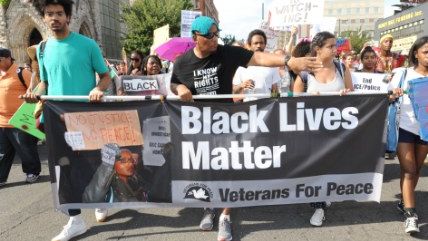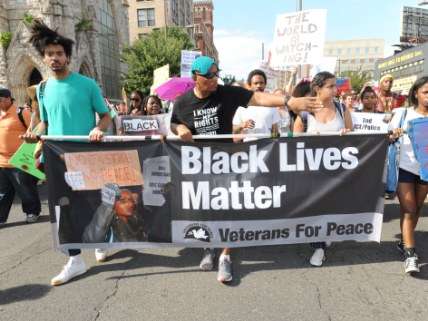How Race Relations Got Worse
How did we end up in a place where a Fox News host is defending slavery?


The election of Barack Obama was a unique moment in the long and complicated history of race relations in America. A huge symbolic barrier had collapsed. Never before was there so much optimism about escaping the grim clutches of the past. We had made a new start that would lead to new heights.
Hope was infectious. Most whites voted against Obama, but on the eve of his inauguration, 55 percent of whites, as well as 75 percent of blacks, thought his presidency would improve race relations. The profound symbolism of a black man in the nation's highest office could hardly be overstated.
"Even in polls taken earlier this year, a majority of African-Americans said that a solution to the country's racial problems would never be found," CNN reported shortly after the election. "Now blacks and whites agree that racial tensions may end." One African-American told CNN, "I've seen this country vindicate itself."
When urban crime declined significantly in Obama's first term, some experts attributed it to the psychological impact of his election. Urban blacks had a new confidence, wrote Ohio State University historian Randolph Roth, and "their greater trust in the political process and their positive feelings about the new president led to lower rates of urban violence."
That was then. This is now: Fox News star Bill O'Reilly, whose show has had the highest ratings in cable news for over a decade, responded to Michelle Obama's speech noting that the White House was built with slave labor by saying those slaves were "well-fed and had decent lodgings." When that comment drew criticism, O'Reilly accused critics of "lies and deception and propaganda."
There were two things of note there: that a mainstream white commentator would suggest things weren't so bad for 18th-century slaves and that when he was upbraided for that suggestion, he would claim mistreatment. But the uproar was a vivid reminder that whites and blacks, as groups, still have incompatible perceptions.
When some whites hear of "well-fed slaves," they heed the adjective. Blacks hear only the noun. When some whites hear references to slavery, they take it as an aggressive personal affront, not a simple recognition of history.
The racial climate, which looked so promising in 2008, has deteriorated. A recent New York Times/CBS News poll found 69 percent of Americans describing race relations as bad—three times the figure in 2009. Three-quarters of blacks have a positive view of the Black Lives Matter movement, but only one-third of whites do.
Having an African-American in the White House made race an inescapable part of discussions that once could skate over it. Obama's position also has threatened the security of whites who tend to regard blacks negatively. To have the nation led by one of "them" rather than one of "us" has been deeply unsettling.
When a black president laments racial injustice, it carries a sting that such comments lacked when delivered by a white one. When Obama expressed sorrow over the killing of Trayvon Martin, a Fox News contributor said he was inciting racial violence.
Any show of black dissatisfaction with the status quo evinces fury among some people of European descent. The Democratic convention segment featuring Mothers of the Movement—black women who have lost children to gun violence or in encounters with police—provoked the conservative National Review to denounce the Democrats as "anti-white," even though their national ticket features two whites.
Such sentiments existed before Obama arrived, and they can be inflamed by events unconnected to him—such as black protests and riots after the killings of Michael Brown and other unarmed African-Americans.
Even Obama's departure may not soothe this white group. The nation's shift away from a white majority is not going to stop when the next president takes office. Black Lives Matter will not fold its tent. The disturbing videos that appear when police kill or brutalize African-Americans will keep coming as long as the incidents occur.
If Hillary Clinton becomes president, it's possible that white anxiety will subside. But the impatience of blacks, deprived of the solace of Obama, may only grow. If Donald Trump becomes president, he will sow triumphalism among resentful whites and a sense of betrayal among blacks. The repercussions are incalculable.
Maybe one day we'll escape the clutches of our racial past. But the day that seemed close at hand eight years ago looks impossibly distant today.
© Copyright 2016 by Creators Syndicate Inc.
